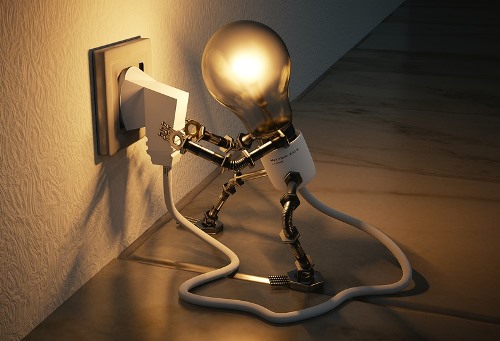|
What You Need to Know About Electricity for Your Home or Business in Bolivia This information on electricity will apply to almost any city in Bolivia. What changes is the name of the power company that provides electricity to each city.
When you rent a home or apartment, the electricity is usually already connected in your landlord's name and is one of only three basic services (including water and natural gas) that have already been set up and turned on, so it should not be necessary for you to do so. You will simply take over the monthly payments and this should be stipulated in your written rental contract. The invoice you receive each time you pay will remain in their name, as the owner of the property. If you need these invoices for tax purposes, the government allows you to turn them in and deduct them from your taxes, even if they are not in your name because they understand it is a rental situation. If you buy a house or build your own home, the connection and invoicing will be in your name as the property owner. If you purchase a home from someone else, it may already have the gas, electricity and water meters installed, but sometimes the previous owner will take these with them, and if this should happen, or if you build your own new home, you will need to purchase the required meters and contact the local electric company for connection.
The local electric company has several requirements before it will connect your meter or provide 'electricidad' to your home. The requirements to set up these basic services ('servicios básicos' or 'obras públicas') are different for residential purposes than for businesses (as are the prices). 'Electricidad' is still relatively inexpensive in Bolivia, but businesses pay about 3 times as much as residences do. You should contact the local company to ask what will be required of you in terms of paperwork or permits, but in general, you will need to show a copy of your rental contract, building permit, or even a prior water bill from the same home so the company can see the exact location, and you will also need to show your identification. There may be other requirements depending on your situation. In every large city of Bolivia, and in most rural areas, you must be very cautious about the location where you rent, buy or build because (usually in the outskirts that have not been fully developed and urbanized yet) public works such as water, electricity, gas and phone lines may not yet be available to all properties and homes. Be aware of this BEFORE you rent or purchase a home or a piece of land you plan to eventually build on. This can be true even in places where homes have already been built and where it looks like other have these services. So before you rent or buy, ASK about each and every one of the utilities, if they exist and are available, and how much is the estimated monthly cost for each one.
There is only one electric company in Santa Cruz, called CRE (Cooperativa Rural de Electrificación). You will be sent an “aviso de cobranza” or “pre-invoice” indicating how much you owe. Your monthly bill must be paid in full each month at the local CRE office, or any bank or credit union. You can even pay it at some grocery stores in Santa Cruz, where CRE has set up small kiosks. Your electtricity will be cut off if you are late paying your bills more than two months in a row. Electricity invoices are hand delivered to your home. Your payment must be made in person, as it is not possible to write a check and mail it in.
    |
